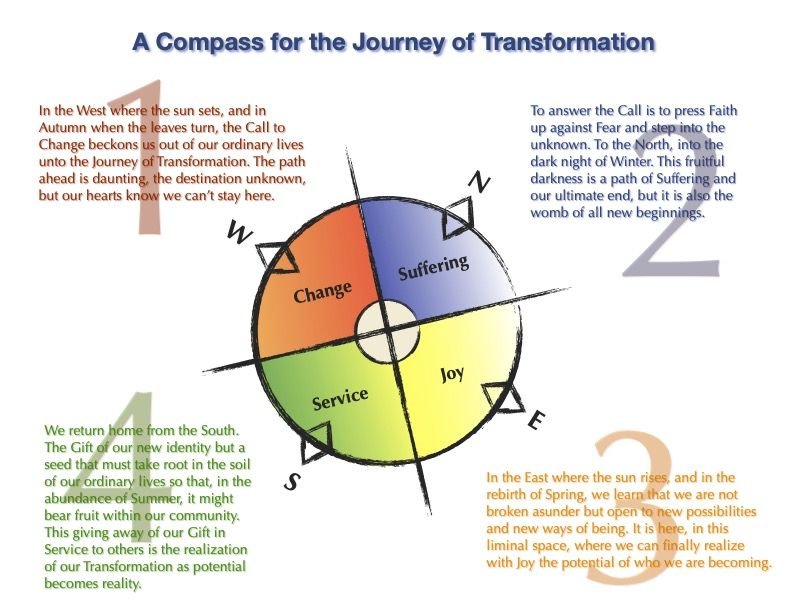Jerusalem Cross Gardening: A Compass For Inner Transformation
Religion Unplugged believes in a diversity of well-reasoned and well-researched opinions. This piece reflects the views of the author and does not necessarily represent those of Religion Unplugged, its staff and contributors.
The full Jerusalem Cross raised bed garden when still under construction. (Photo by Roger Hudson)
(OPINION) Barren and cold at the moment, only dried out tomato vines on wire frames remain standing to shelter insects through winter.
Yet even in this frigid death, signs of life show. Green garlic shoots poke bravely through the cold in defiance of winter, a sign that change will come, Spring is on its way.
My anticipation builds as the days grow longer. Soon the usual gardening of soil activities will begin — the making of compost, fertilizing of beds, watering of plants and the harvesting of crops.
But it is the gardening of soul that so excites me about the coming growing season — the experience of winter as a “womb of new beginnings” and spring as an encounter with that life-force that makes all things new.
So, too, the Jerusalem cross raised bed, with its four quadrants facing west, north, east and south — each representing one of nature’s four seasons (fall, winter, spring and summer) — and one of the four Christian Gospels (Matthew, Mark, John and Luke/Acts). These will serve as a compass for a journey of inner transformation.
Guided by the universal “Four Path Journey of Quadratos” as developed by Alexander John Shaia, each day I’ll stand at the center of my Jerusalem cross raised bed and alternately gaze west, north, east and south while contemplating each path’s question:
For west, Path 1 of fall and Matthew, “How do I face change?” For north, Path 2 of winter and Mark, “How do I move through suffering?” For east, Path 3 of spring and John, “How do I receive joy and experience union?” And for south, Path 4 of summer and Luke/Acts, “How do I mature into service?”
Change is a part of life, and coping with it important, which is what makes the Quadratos paradigm with its core premise “that the four gospels were selected together to be used as a process for inner transformation” so helpful.
Matthew, written for the early Messianic Jews in Antioch, their temple destroyed and the chief priests murdered by Rome, helps them cope with change.
Mark, addressed to the early Christians of Rome, facing death if they didn’t renounce the Christ, were helped to move through suffering with the book’s chief metaphor being Jesus and his disciples together in a small boat crossing a stormy sea.
John, writing for the early Christians in Ephesus, a cosmopolitan city of many cultures and gods all vying for attention, celebrated that in the Christ all were one. And for a brief moment in history, Paul’s “neither Jew nor Greek, male nor female, slave nor free” community triumphed over division.
Finally, Luke/Acts was written for all Christ followers, who, like those on the road to Emmaus questioning “all the things that have happened in Jerusalem,” struggled to integrate it all into a life that matures into service.
This past fall, while harvesting squash from my garden as the leaves changed color, I wrestled with the changes facing me in my shift from pastoring a congregation to retirement from the institution in order to more intentionally engage nonviolence and earth care. The summons to change had simmered within me for many years, a real test of how to endure my long winter of uncertainty.
But spring arrived much as a garden fills with blooms and fruit, offering a joyful union with life’s fuller purpose.
And ahead? Ahead lies the warmth of summertime and my personal “yes.” “Yes” to being a Christ follower, at peace and with purpose, in a constantly unfolding world. Grounded in my garden, Quadratos’ integration of Gospel, gardening and earth’s seasons, offers a compass for inner transformation that enriches my gardening of soul.
Daily, it centers me ever deeper into the Christ, freeing me for a life of calm engagement with a world birthed in, by and for love, and needing more.
This piece originally appeared at SpokaneFāVS.
From South Africa to Washington State, Roger Hudson is searching out better ways to live in "friendship — with God, people, and all creation." A practitioner of permaculture design, he is currently developing a sustainable food production system of veggies, fruit, herbs, chickens and flowers in his yard. You can reach him at newstoryspokane@gmail.com.


